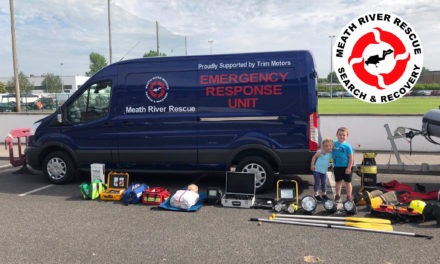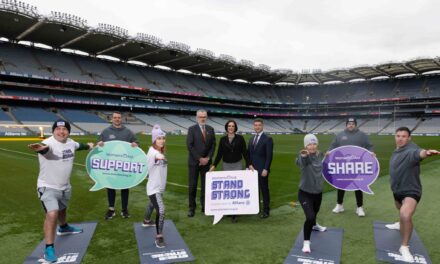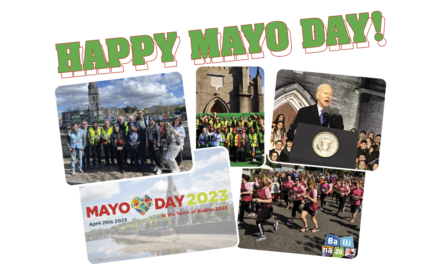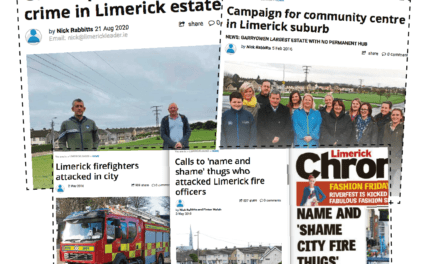A survey undertaken by the Irish Council for Civil Liberties (ICCL) has highlighted how contractual clauses restrict certain groups within the community and voluntary sector from advocacy and speaking out on behalf of their communities.
The preliminary findings were released to Changing Ireland and indicate a problem that persists since Dr Clíona Saidléar, then acting director of the Rape Crisis Network Ireland, wrote about the issue for Changing Ireland in 2015.
She was concerned by the increasing use of restrictive clauses in funding contracts and its implications for work speaking out on behalf of rape victims. We spoke to a minister at the time about Cliona’s concerns.
The ICCL’s survey, carried out over the summer, received input from 295 people, over a third of whom said they were working or volunteering with organisations that restricted their advocacy work out of fear of upsetting a funder. Some said it was explicitly written into their funding contracts.
Lead researcher Ronan Kennedy points out that some clauses are legitimate: “If an organisation is in receipt of state funding to provide services – such as beds for homeless people – there’s nothing wrong with those contracts saying, ‘These specific funds are only to be used for the provision of these services’. That’s perfectly legitimate.
“But it shouldn’t go beyond that. The receipt of state funding can’t be used as a brake on an organisation’s wider advocacy work,” he said.
He pointed out that the survey is not an academic study. The geographic spread is uneven (eg 38% from Leinster, 6% from Munster). Over a third of respondents work in community-based health-related work. Half the respondents operate at a national level.
Nonetheless, it is the first time a survey of this kind has been carried out and it highlights an issue. Ronan said, “People have known about this for years, it’s been whispered about, people know it’s a big issue.”
While he was pleased with the number of survey responses and said the findings were consistent across all sub-categories (geography, type of organisation, etc), Ronan was reluctant, at this point, to name the bodies people complained most about. The full details will appear in November.
“We will publish an annex with absolutely everything we found in November,” said Ronan.
For the record, he did say that Pobal barely features and there was not a single complaint about the Department of Rural and Community Development.
We look forward to hearing which bodies may have questions to answer on how they could better support advocacy work.
In the meantime, quotes (below) that the ICCL received anonymously from its survey respondents reveal the level of interference in advocacy work. Do any of these statements echo your experience? Or has your organisation free rein to advocate on behalf of your community? We would like to hear from you. Contact the editor in confidence.
What community and voluntary sector workers who took part in the Irish Council for Civil Liberties survey said:
“At one point it was stated by a public servant in a meeting that the organisation was to choose between advocacy or service delivery. That the organisation couldn’t do both.”
* * * * *
“Member organisations of our networks, without having been directly threatened, are reluctant to be seen to take positions that would be at odds with [Government Department].”
* * * * *
“Any direct and indirect funding has the non-political unwritten rule (and) we have to get creative about how we deliver what we wish to do, and we have withdrawn from funding or not applied due to conditionality.”
* * * * *
“Funding from [State Agency] was withdrawn following a review by [State Agency] that we were not part… We had been extremely vocal about a range of issues and critical of government policy and have always felt that it was a targeted withdrawal. We lost one staff member and a project that had been embedded in the community.”
* * * * *

• The ICCL survey asked: Are you free to advocate?
* * * * *
“We have been in the room when a senior civil servant said it was not our role to criticise government policy.”
* * * * *
“There is a cultural tendency in most organisations to do nothing that is likely to upset or challenge authority, such that if you stand out and voice concerns or take a differing perspective you can be silenced, sidelined or ignored.”
* * * * *
“There is no obvious threat but there is an implicit culture of compliance with government departmental objectives that effectively ensure that the more critically-minded are kept out of the picture.”
* * * * *
“It has often been alluded to, to not rock the boat, or (that) it’s not the role of our organisation to bring certain issues to light.”
* * * * *
“At local level with local authorities… our Service Level Agreement is always referred to and the restrictions within it are often exaggerated. If there’s a tender for a new service coming up, we’ll avoid media work as it will impact our chances of success.”
About the ICCL / Certain rights guaranteed:
The Irish Council for Civil Liberties (ICCL) was established in 1976 by Mary Robinson and others. It has been active since then in monitoring and defending the rights to freedom of expression and association of community, voluntary and non-governmental organisations. It does not receive any state funding.
As the ICCL point out, freedom of expression and freedom of association are guaranteed under the Irish Constitution, the European Convention on Human Rights, the EU’s Charter of Fundamental Rights and the International Covenant on Civil and Political Rights.
“As party to these treaties, the State is obligated not only to protect but also to foster and cultivate a free and open civic space,” it says.
39% of civil society groups engaged in advocacy work in 2013





